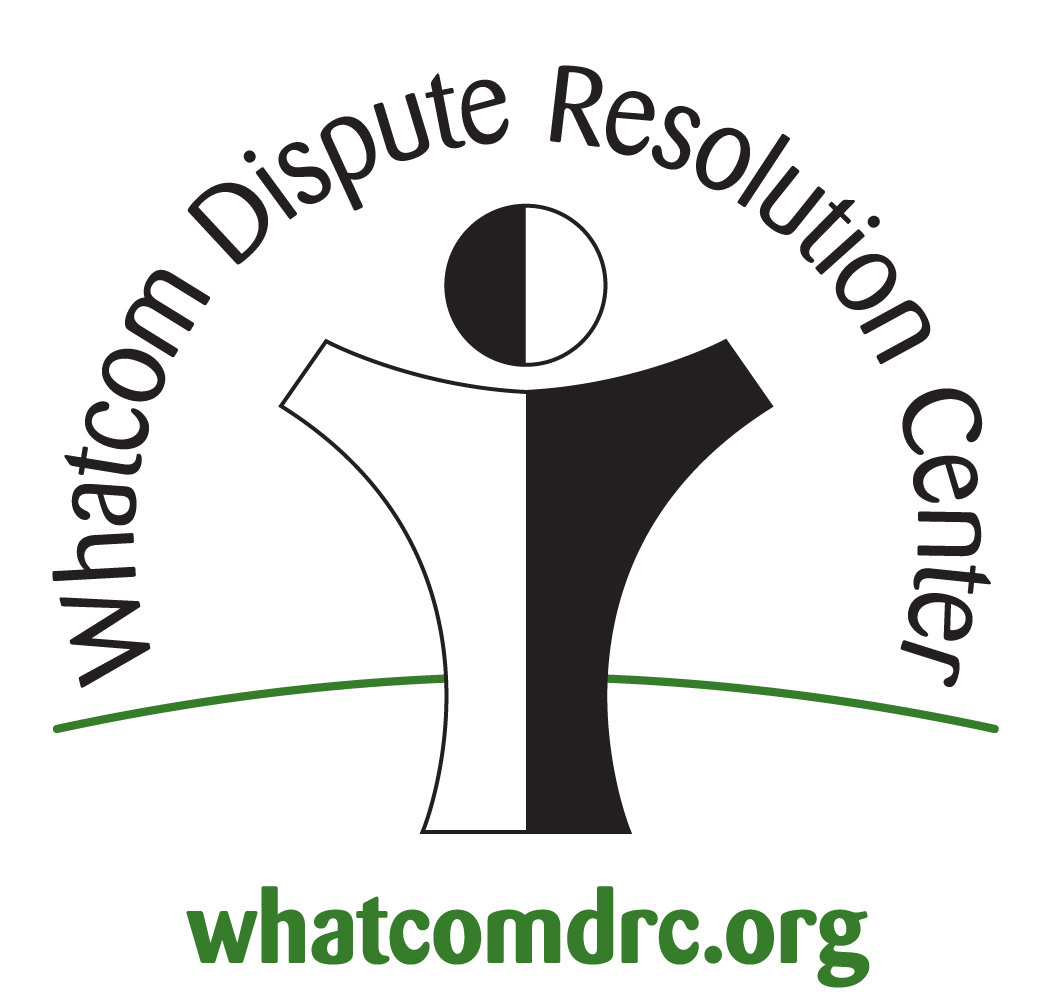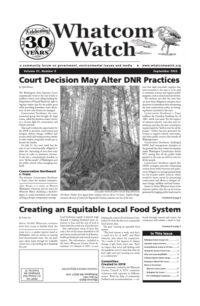by Jennifer Stephens
For the past 30 years, the Whatcom Dispute Resolution Center has offered conflict prevention and intervention services for businesses, organizations, individuals, and families. With a mission of providing and promoting constructive and collaborative approaches to conflict, the WDRC seeks to build the capacity of community members to better manage conflict as it arises, and to learn ways to minimize the possibility of it occurring. Recognizing that conflict is a normal and natural part of life, and sometimes people and organizations need impartial assistance, the WDRC provides education, mediation, facilitation, and coaching services. The WDRC values impartiality, accessibility, empowerment, collaboration, communication, and integrity.
The WDRC’s story began in 1992: Volunteers, committed to helping the Whatcom County community re-humanize conflict, formed a local nonprofit organization. Since that beginning, the WDRC has evolved and adapted to meet the changing needs of the community, especially during these times of Covid-19, civil unrest, and world conflicts. Since its inception, the WDRC has helped over 50,000 individuals, children, families, and small businesses resolve conflicts in creative and peaceful ways. In 2014, the WDRC received the Whatcom County Chamber of Commerce Nonprofit of the Year award, and, in 2021, the WDRC mediation team received the Ken Gass Community Building Award for improving the lives of children and families.
Services Provided
Services the WDRC provides Whatcom County include:
• Mediation: Mediation is a voluntary, confidential, and affordable process for resolving conflict with the help of a neutral, trained professional. The mediator assists parties in creating their own agreements using a proven process, which addresses the interests of all parties involved. Participants often leave with a greater understanding of the situation and a mutually satisfying resolution. The WDRC provides Professional Mediation Training and a Mediation Practicum Program to teach individuals the skills of a mediator to use in their families, workplaces, and if they are interested, to become a certified mediator.
• Educating Youth: The WDRC works to empower youth in schools, the juvenile justice system, and other local agencies to learn healthy communication skills, staying calm in the face of conflict, and collaborative problem solving. The WDRC also offers restorative practices and youth mediation services to help sort through the conflicts that come up in their lives.•
• Educating Adults: The WDRC offers many trainings and workshops for adults, which include Understanding Conflict to teach healthy communication skills and to help participants learn about their own conflict styles. The WDRC offers courses for co-parents to learn skills to collaboratively raise their children while keeping what is best for the children in mind. The WDRC also provides Exploring Equity and Cultural Humility workshops to support participants in honoring human diversity and learning more about themselves in the process.
• Supervised Visitation: The WDRC’s Supervised Visitation Program provides a positive and safe place for parents and children to visit with one another. Supervised Visitation is contact between a noncustodial parent and the child(ren) in the presence of a third person responsible for observing and ensuring the safety of those involved. This process can be very rewarding as it brings together families, parents, and children.
• Facilitation: Facilitation is helpful for important conversations in which there is a lot at stake, and allows all participants to fully engage. The WDRC customizes processes for each group or organization, which helps to ensure all group members can participate in a safe and productive environment. Groups and organizations use the WDRC facilitation services to guide meetings in which emotions may run high or in when important decisions are made. The WDRC has provided facilitation services for organizational boards, work departments, extended families, individuals in shared living environments, community meetings, and more.
• Safe Spaces: The WDRC’s Safe Spaces Program provides another access point for community members to make a complaint due to concerns about the City of Bellingham’s services, or their experience interacting with or within the City of Bellingham. In recognition that barriers to direct communication between community members and the City of Bellingham do exist, the program provides an avenue for those who feel unable, unwilling, or previously unsuccessful in bringing their complaint directly to the City of Bellingham, with the option to remain anonymous as well.
In addition to the important services the WDRC provides daily, it is also celebrating its 30th year anniversary with a campaign entitled “What Does Peace Mean to You?” The WDRC collaborated with 10 local artists, each of whom painted a bench expressing their own interpretation of peace; the benches are available for public enjoyment at key locations throughout Whatcom County. The artists include David Syre, Jason LaClair, Kevin Coleman, Gabriel’s Art Kids and Robert Williams School of Arts and Sciences, Adrien Converse, Taj Williams, Rachel Simpson, Faith Ellsworth, Jim Dixon and the Whatcom Council for the Aging.
To view the interactive map of the bench locations, to learn about the artists, and to submit your own stories of peace, visit www.whatcomdrc.org. The campaign will run through October and culminate in the Peace Builder Awards on October 21.
Learn More
To learn more about the Whatcom Dispute Resolution Center, visit www.whatcomdrc.org.
Donate Today
Consider joining the Partners for Peace monthly giving program. When you commit to a monthly donation of any amount, you join a community of donors who make it possible for the WDRC to provide ongoing support, education, and services to our neighbors here in Whatcom County.
Your donation will help provide access to workshops for to K-12 students throughout Whatcom County, assist a family in financial distress to avoid foreclosure on their home, ensure that low-income families and neighbors have access to mediation, help community groups access facilitation services for contentious issues, allow children and parents to spend time together in Supervised Visitation, and help parents take co-parenting workshops to reduce conflict within their family.
._________________________
Jennifer Stephens, WRDC’s community engagement manager, has spent the last 25 years working with nonprofits, private sector businesses, and public sector organizations. Jennifer has lived in Bellingham with her family for the past four years — prior to that she lived over in the Methow Valley where she enjoyed backpacking, Nordic skiing, and mountain biking





























